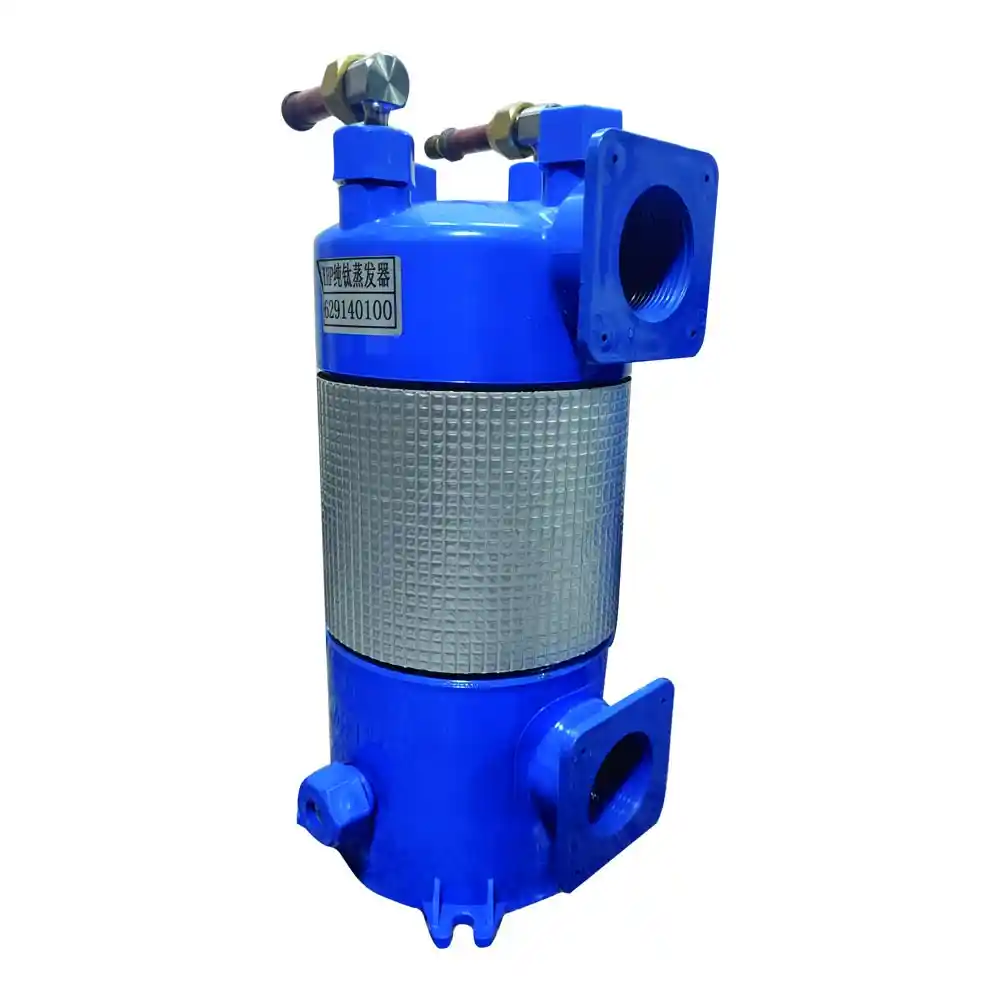Introduction
Coaxial heat exchangers with titanium coils and PVC blue shells are widely used in commercial buildings for various heating, cooling, and hot water applications. This article explores the specific applications of these heat exchangers in commercial settings and highlights their benefits and advantages.
1. Heating Applications
Coaxial heat exchangers find extensive use in commercial buildings for heating purposes. They are employed in various areas, including:
1.1. Space Heating
Coaxial heat exchangers are crucial components in commercial space heating systems, such as boilers and heat pumps. They efficiently transfer heat from the heat source to the circulating air or water, ensuring comfortable indoor temperatures.
1.2. Radiant Heating
Coaxial heat exchangers are utilized in radiant heating systems commonly found in commercial buildings, such as warehouses and large open spaces. They provide efficient heating by transferring heat to the circulating fluid (usually water) that flows through pipes or panels installed in the floor or ceiling.
2. Cooling Applications
In addition to heating, coaxial heat exchangers play a significant role in commercial cooling applications. They are used in the following areas:
2.1. Air Conditioning
Coaxial heat exchangers are essential components of commercial air conditioning systems, including central air conditioners and rooftop units. They facilitate heat transfer between the indoor air and the refrigerant, enabling effective cooling and dehumidification.
2.2. Process Cooling
Coaxial heat exchangers are employed in various commercial processes that require cooling, such as data centers, manufacturing facilities, and refrigeration units. They help remove heat generated by equipment or processes.
3. Hot Water Applications
Coaxial heat exchangers are also utilized for hot water generation in commercial buildings. They offer efficient heat transfer capabilities and are commonly used in the following applications:
3.1. Domestic Hot Water
Coaxial heat exchangers are integrated into commercial water heaters to provide a reliable supply of hot water for various purposes, including bathrooms, kitchens, and laundry facilities.
3.2. Swimming Pool Heating
Commercial swimming pools often require heating to maintain the desired water temperature. Coaxial heat exchangers are employed to transfer heat from a heat source, such as a boiler or heat pump, to the pool water.
Benefits of Coaxial Heat Exchangers in Commercial Buildings
| Benefits | Descripción |
|---|---|
| High Heat Transfer Efficiency | Coaxial heat exchangers offer excellent heat transfer performance, ensuring efficient heating and cooling. |
| Compact Design | The compact design of coaxial heat exchangers makes them suitable for space-limited commercial applications. |
| Corrosion Resistance | Titanium coils and PVC blue shells provide corrosion resistance, ensuring durability and longevity. |
| Easy Installation | Coaxial heat exchangers are easy to install and integrate into existing commercial HVAC systems. |
| Energy Efficiency | The efficient heat transfer of coaxial heat exchangers contributes to energy savings and reduced operating costs. |
These benefits make coaxial heat exchangers a reliable choice for heating, cooling, and hot water applications in commercial buildings.
In summary, coaxial heat exchangers with titanium coils and PVC blue shells find widespread applications in commercial buildings for heating, cooling, and hot water generation. They offer high heat transfer efficiency, compact design, corrosion resistance, easy installation, and energy efficiency. These features make them a preferred choice for efficient and reliable thermal management in commercial settings.


